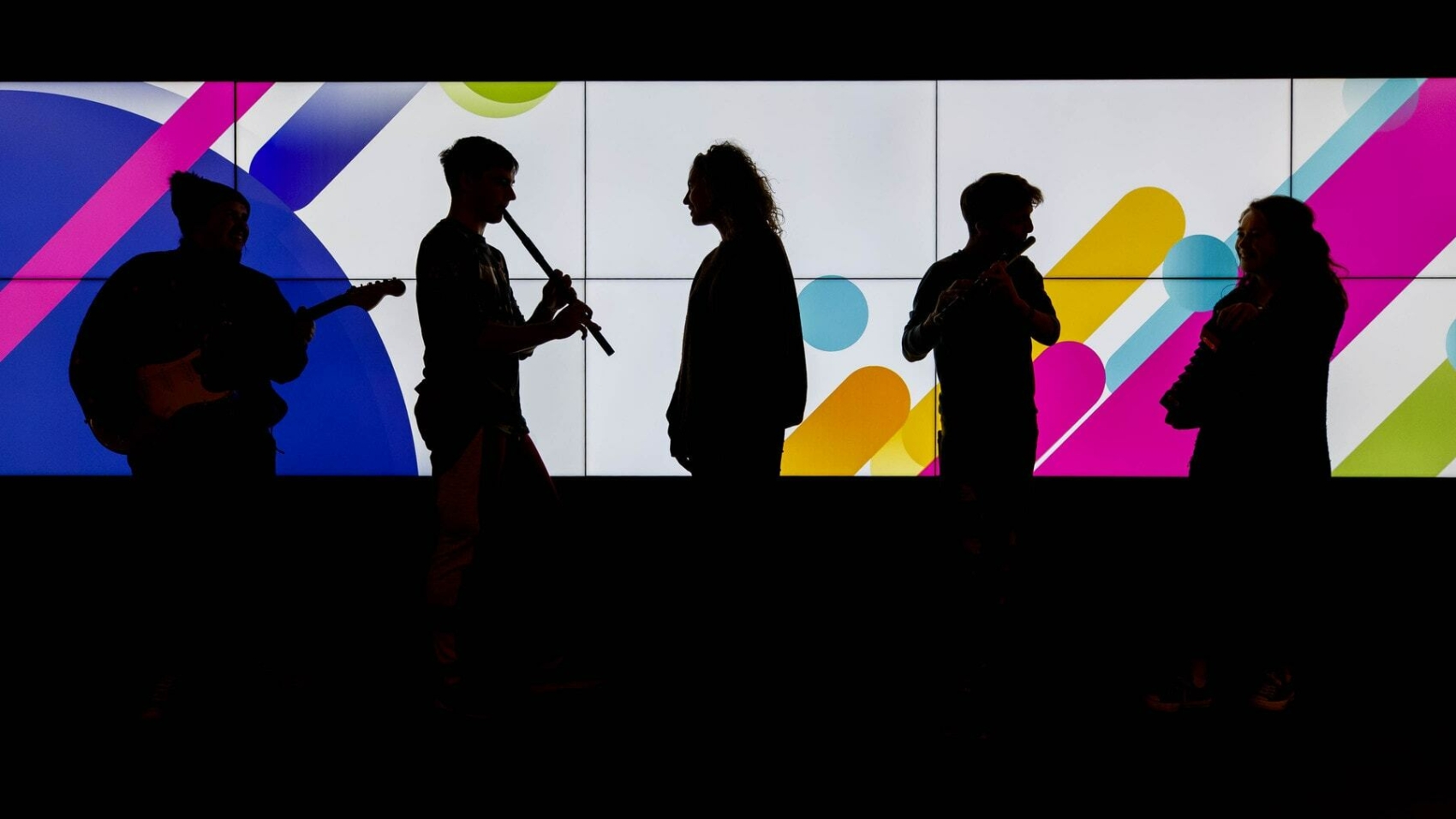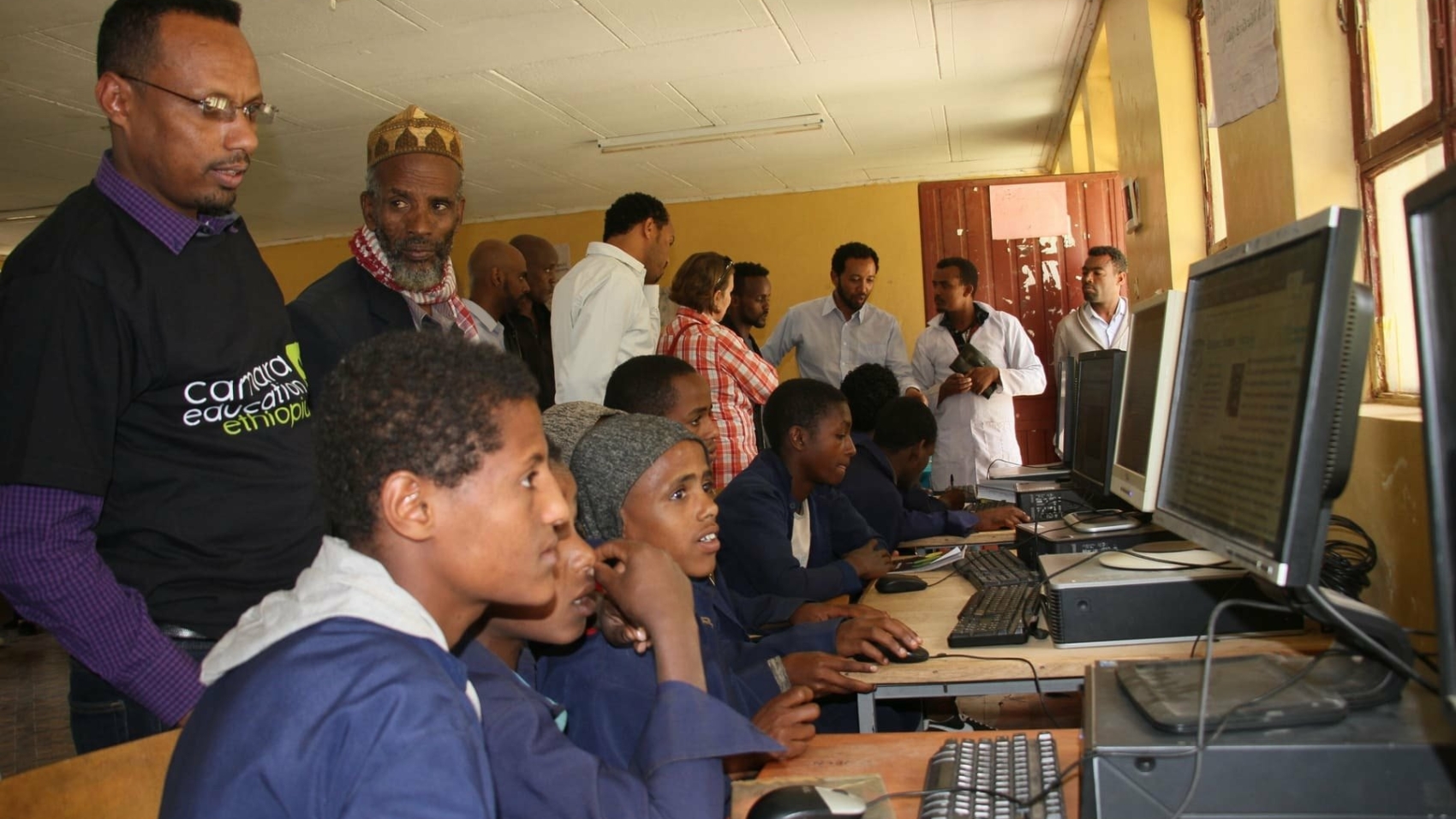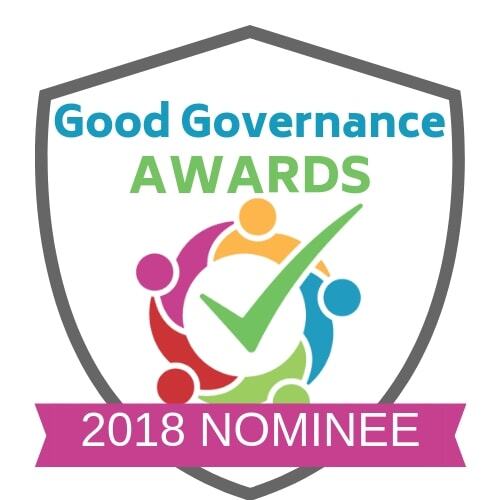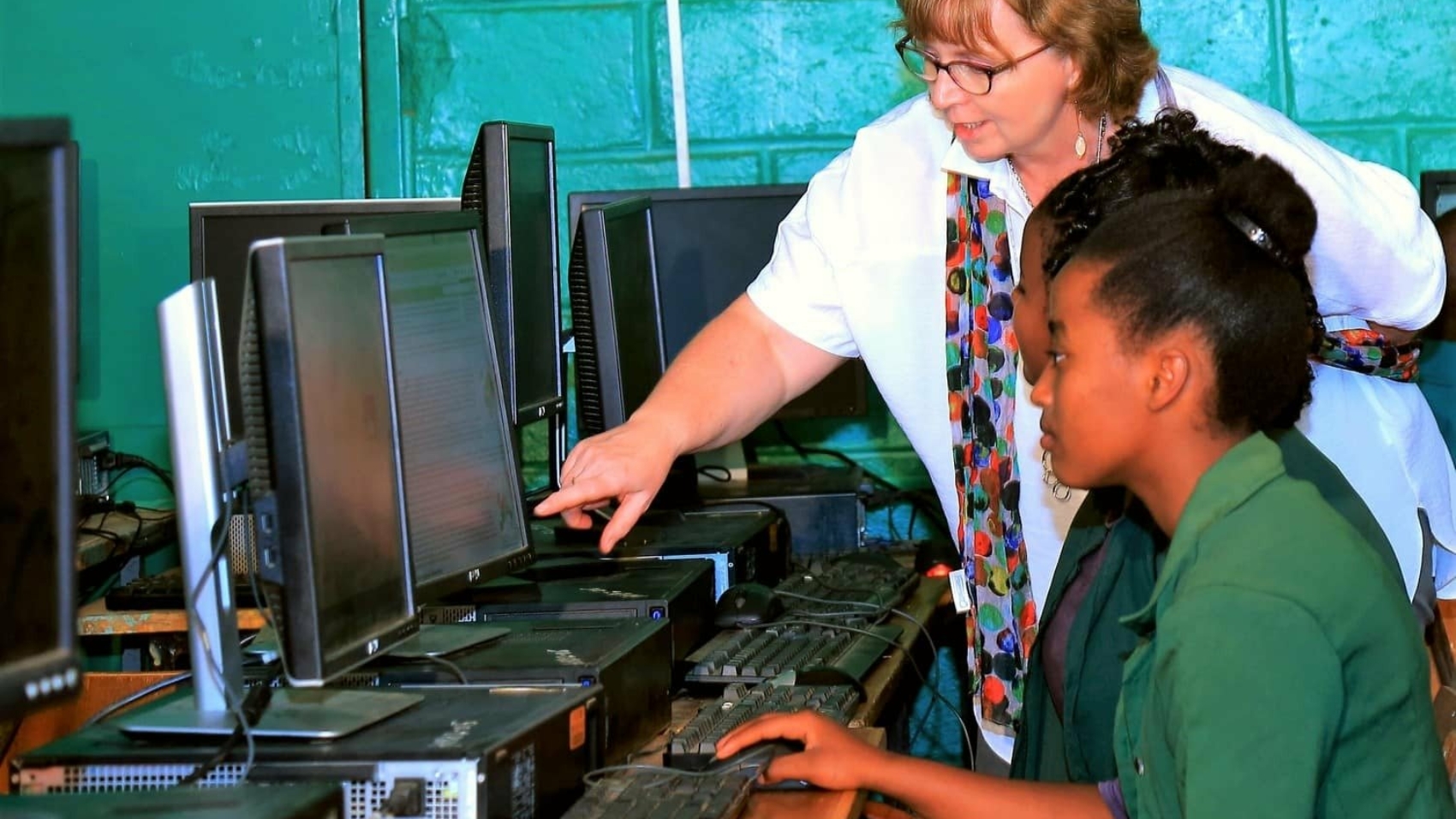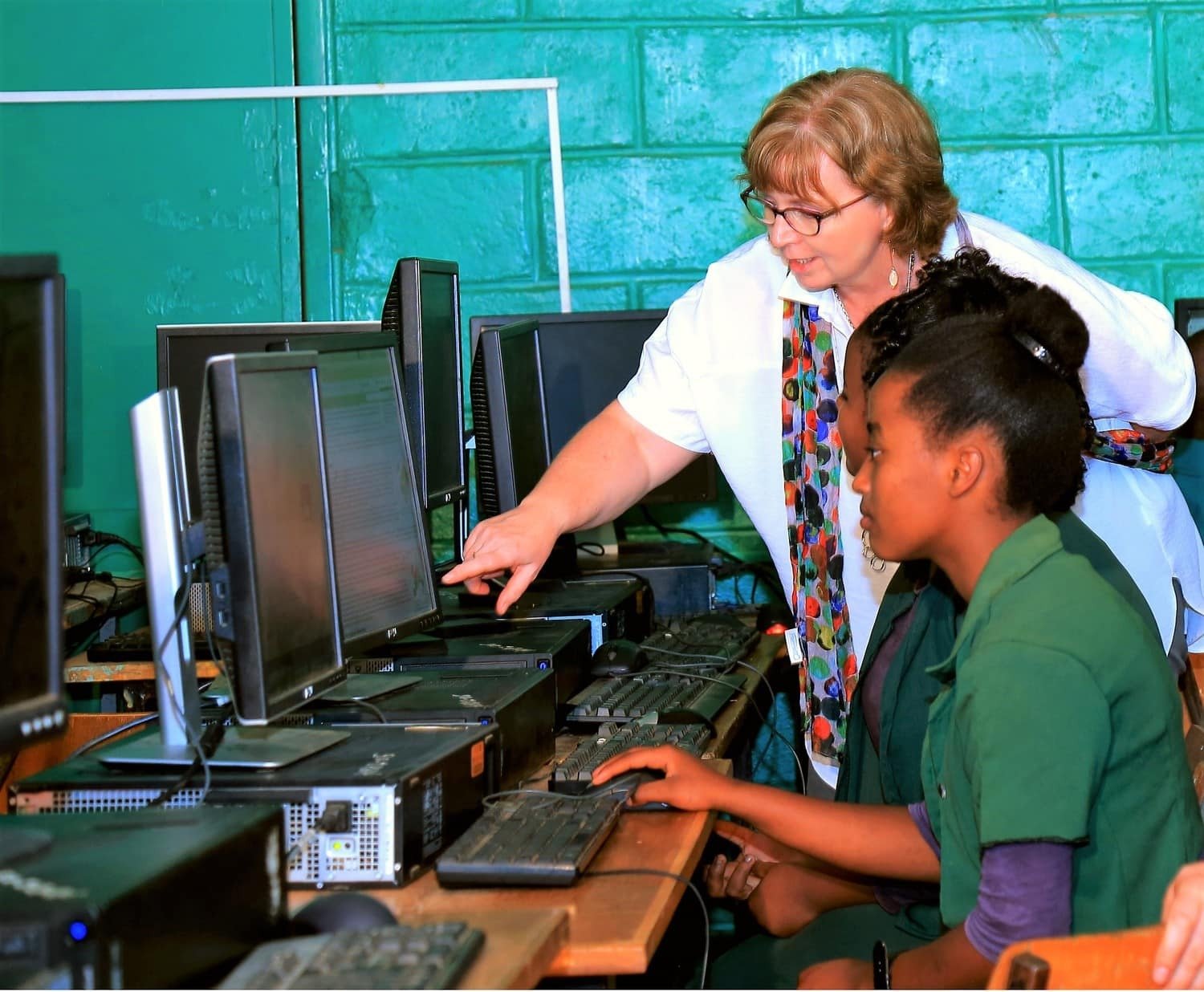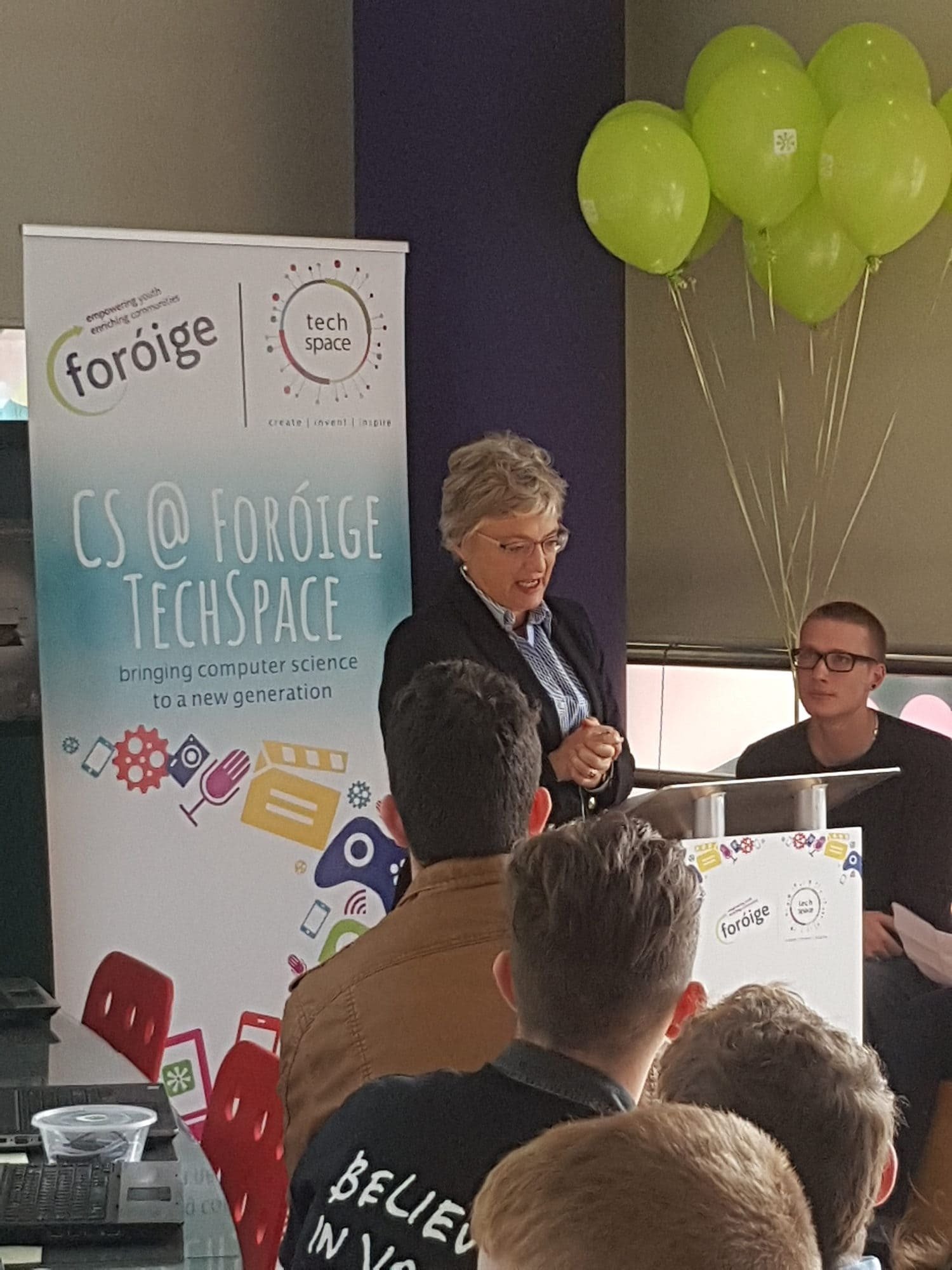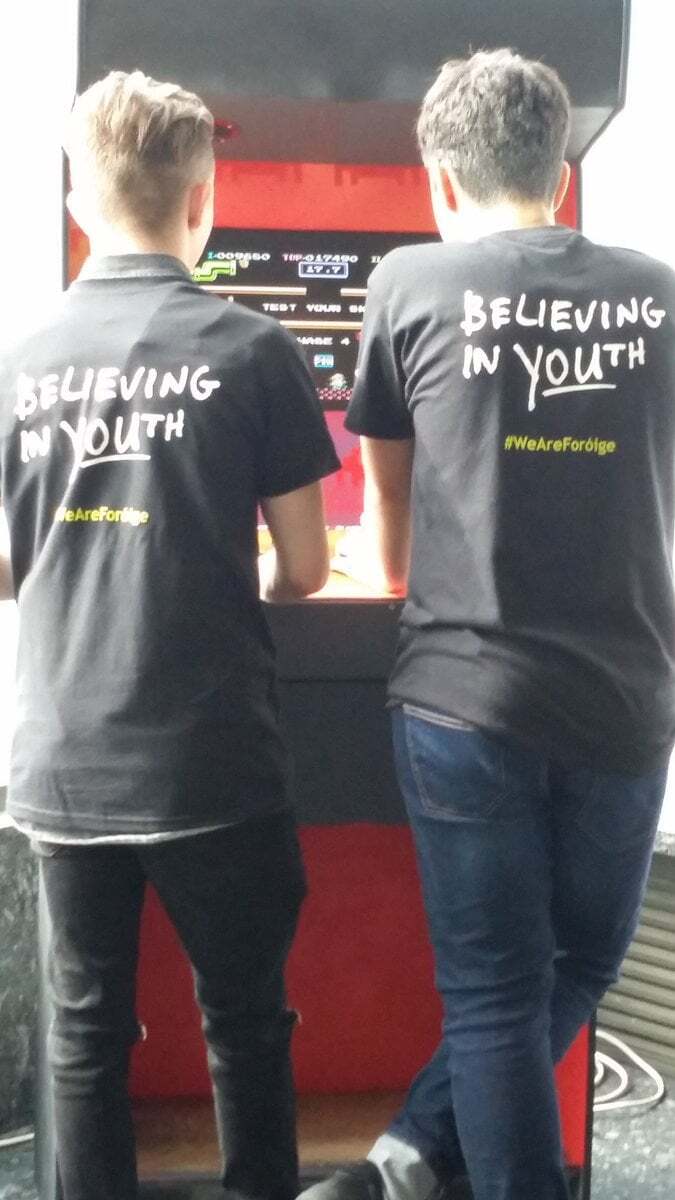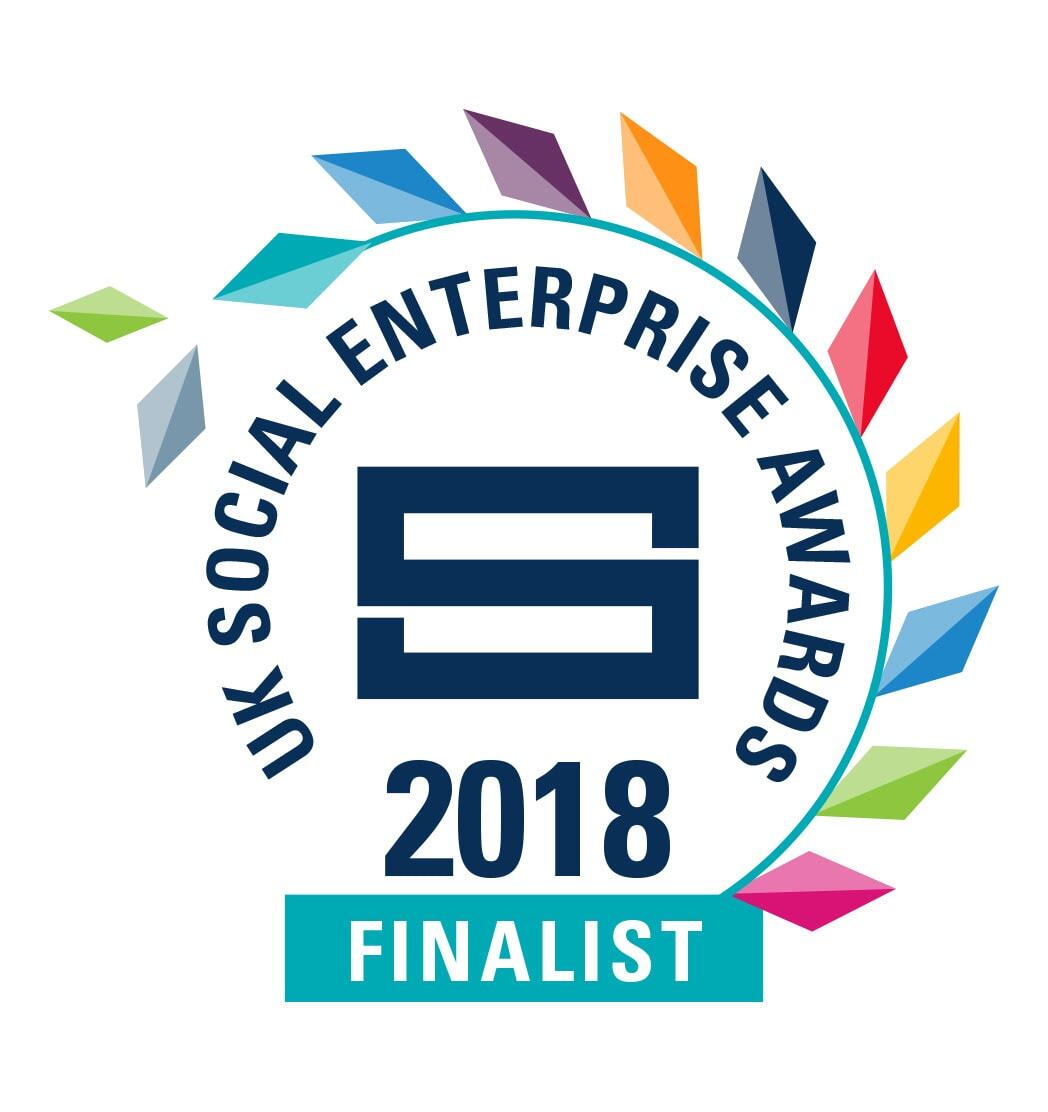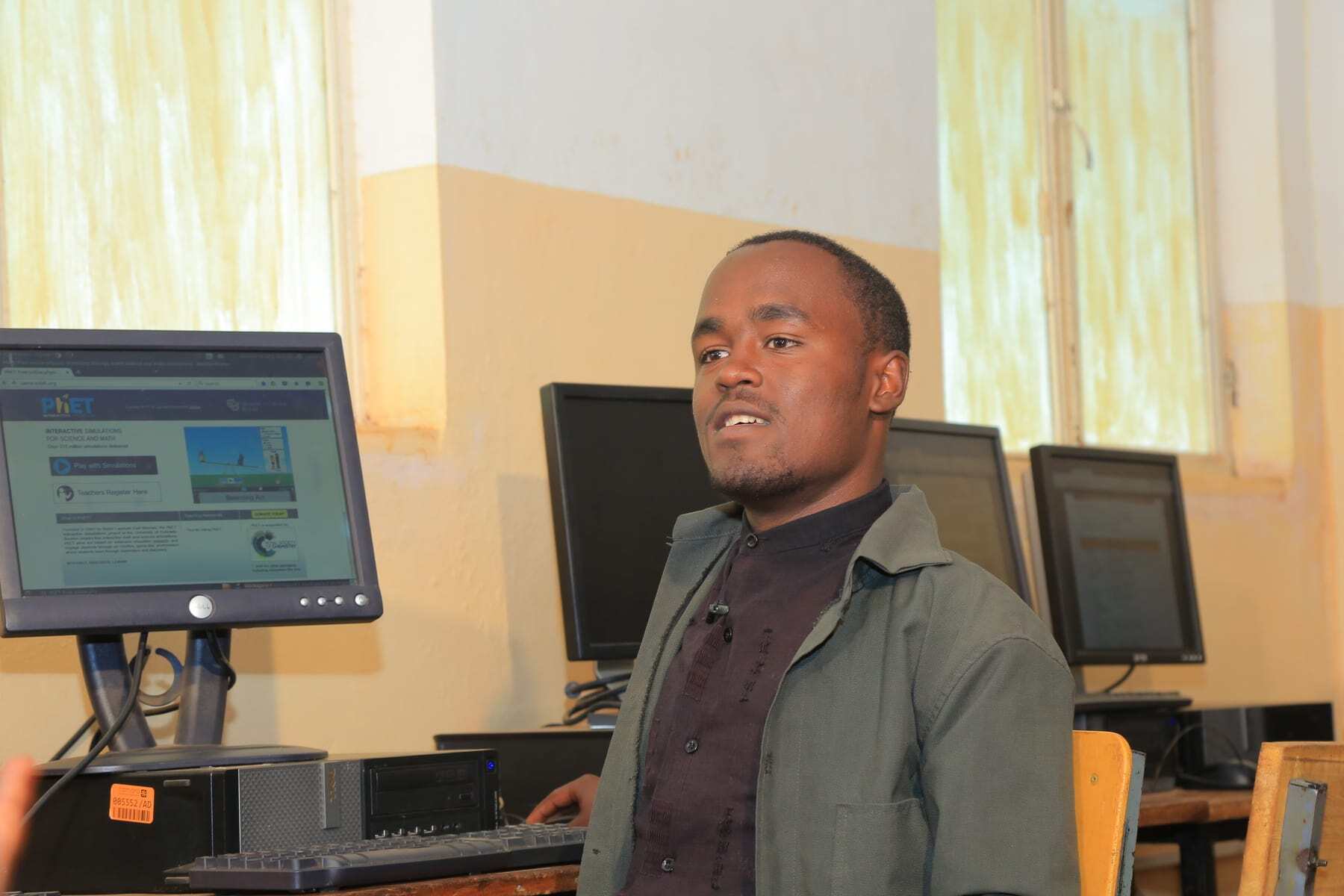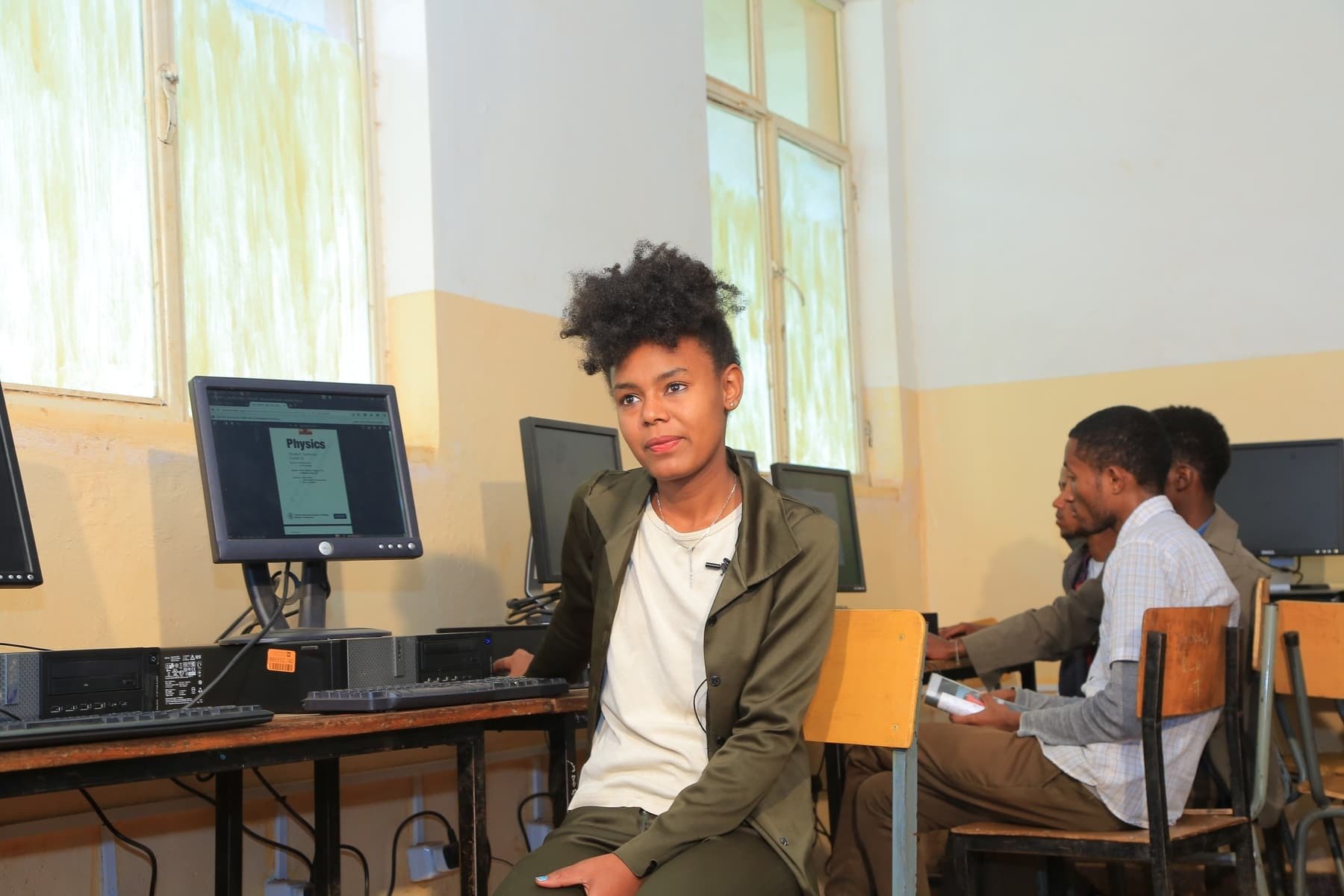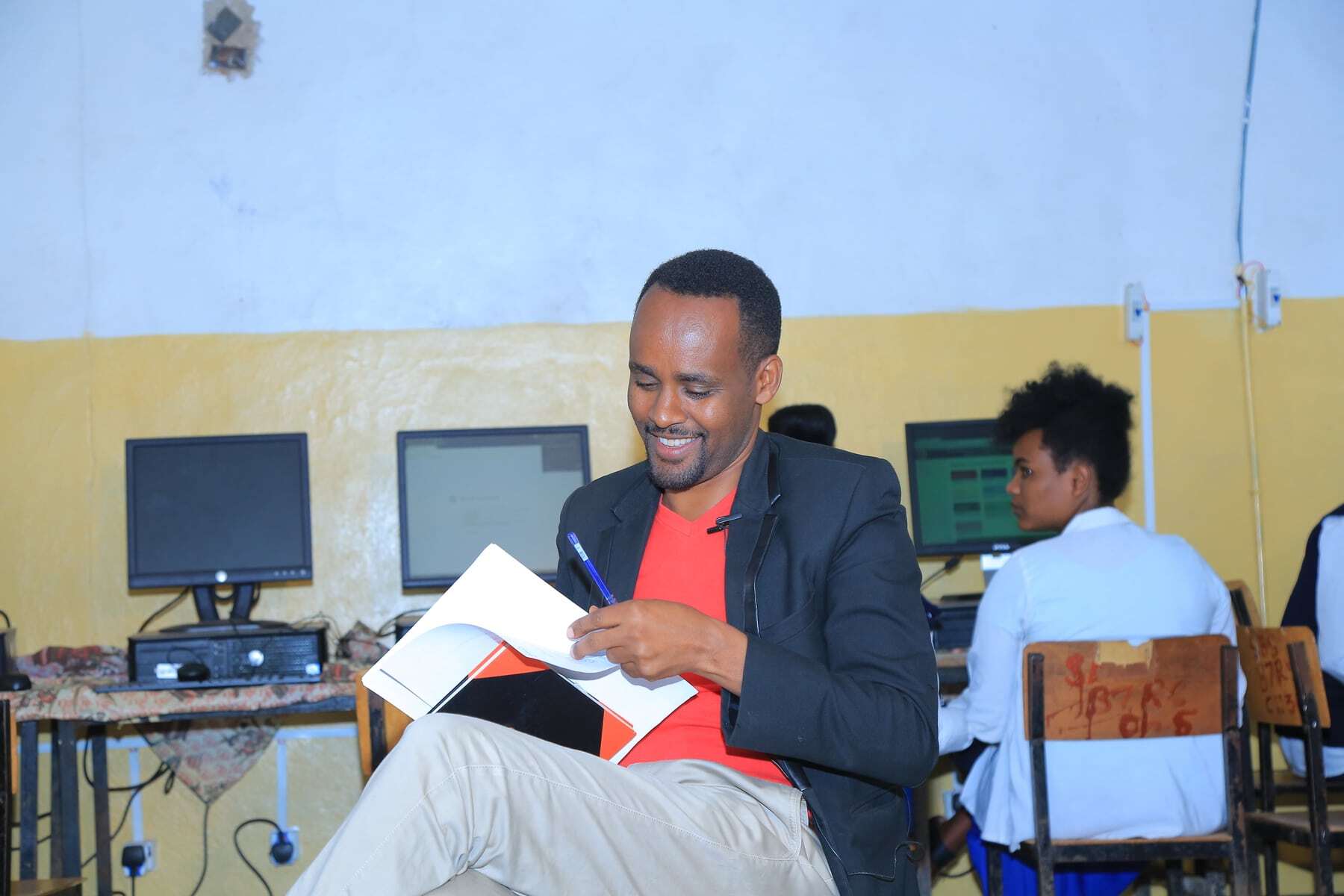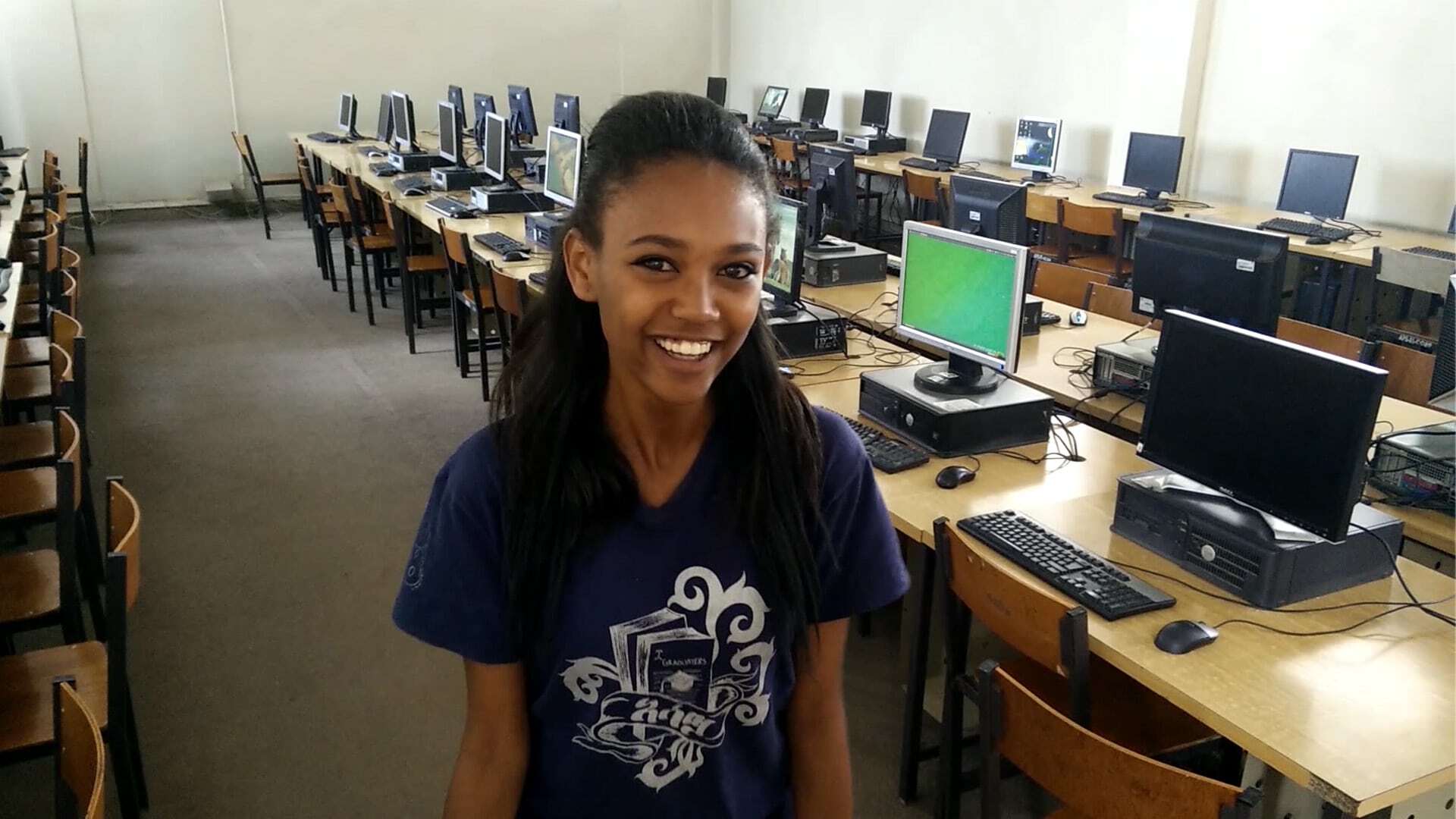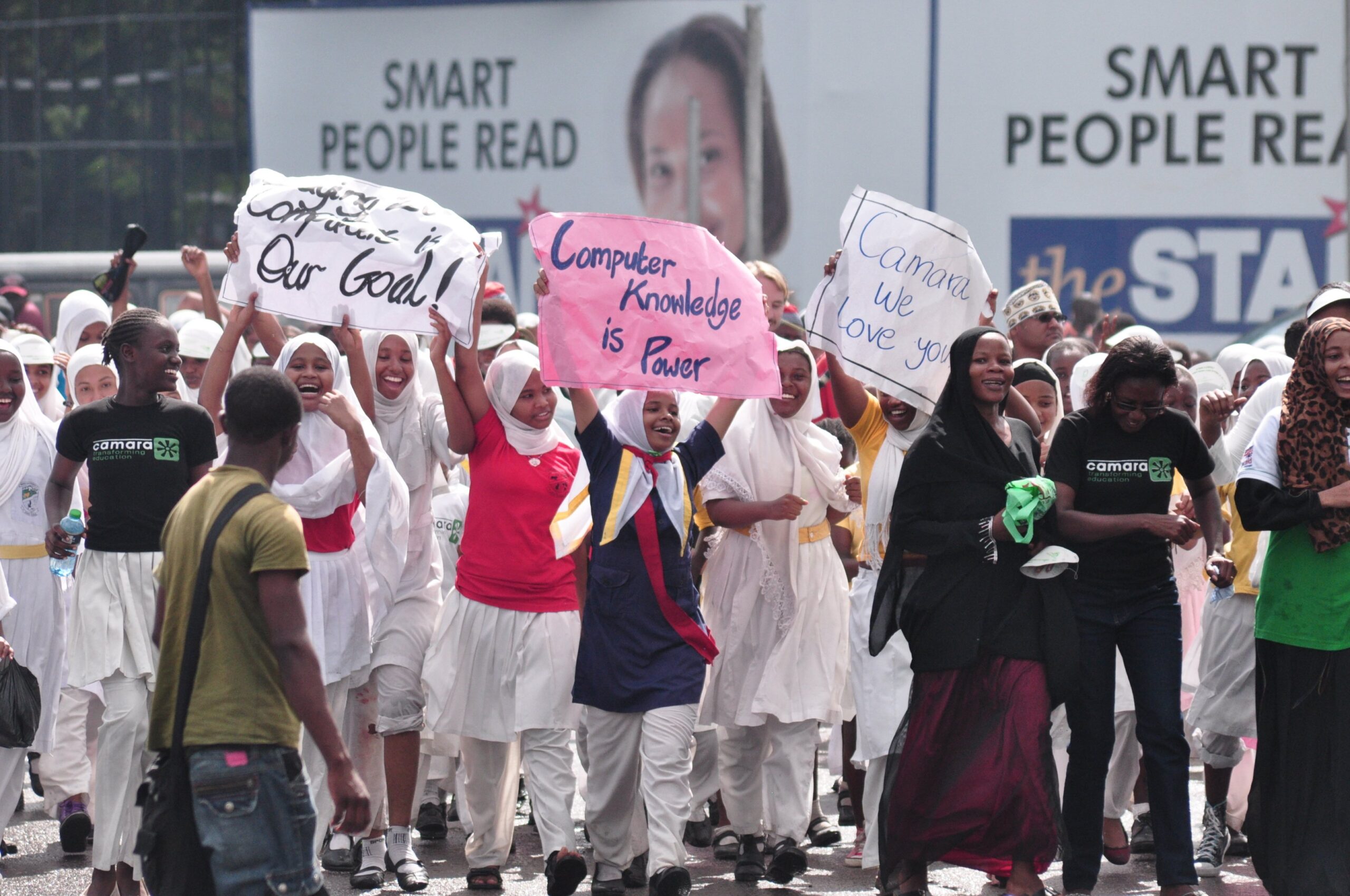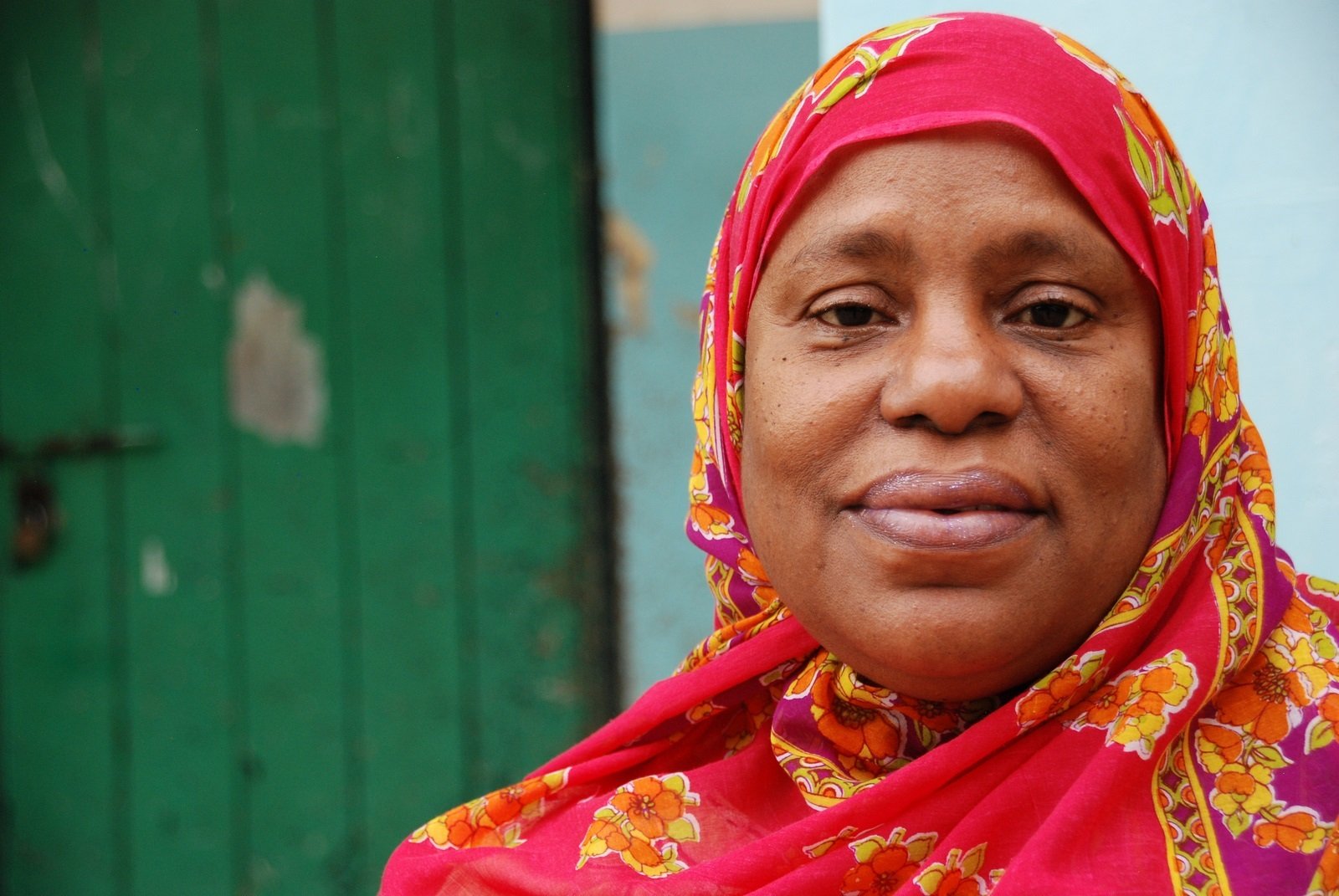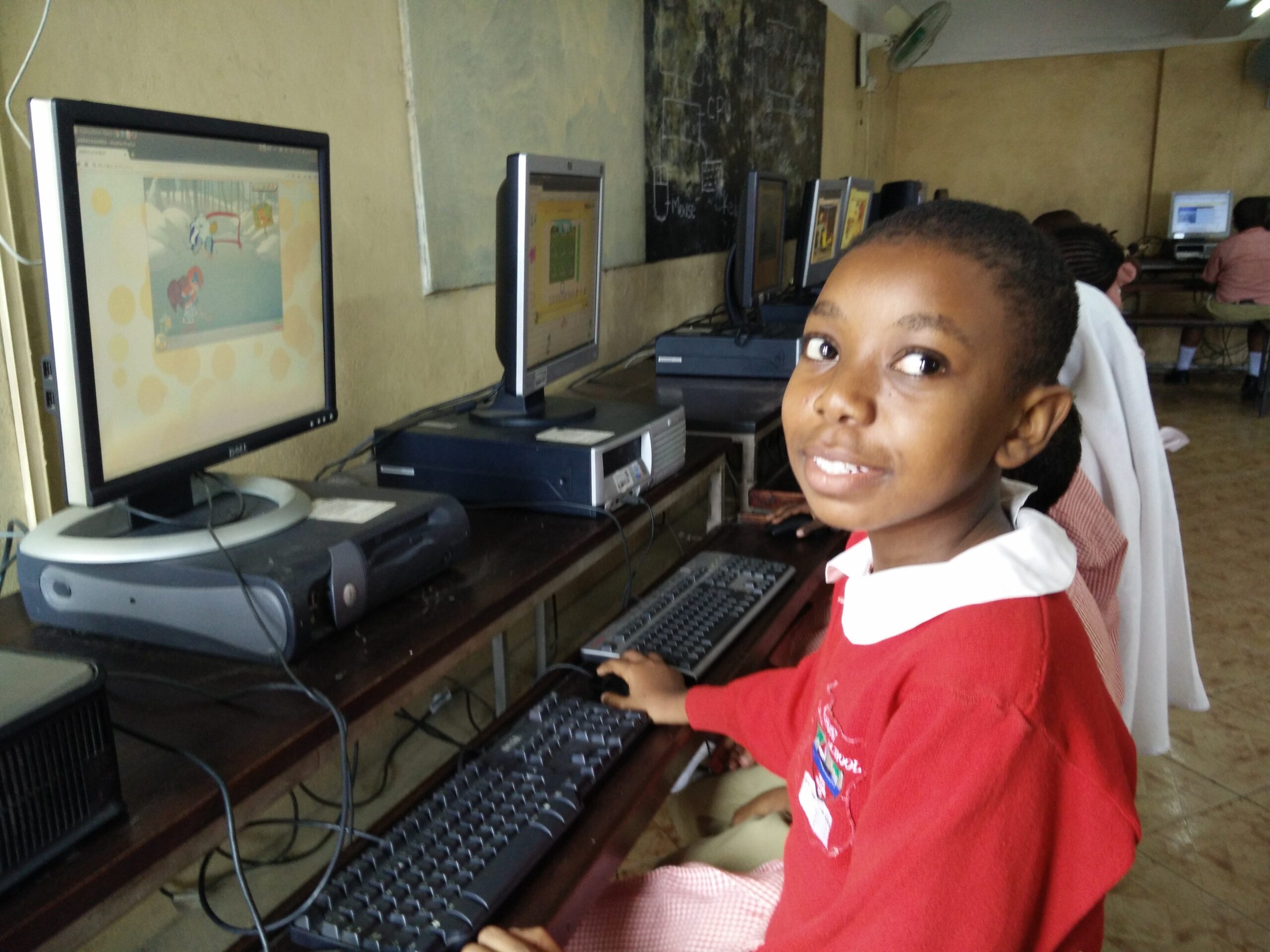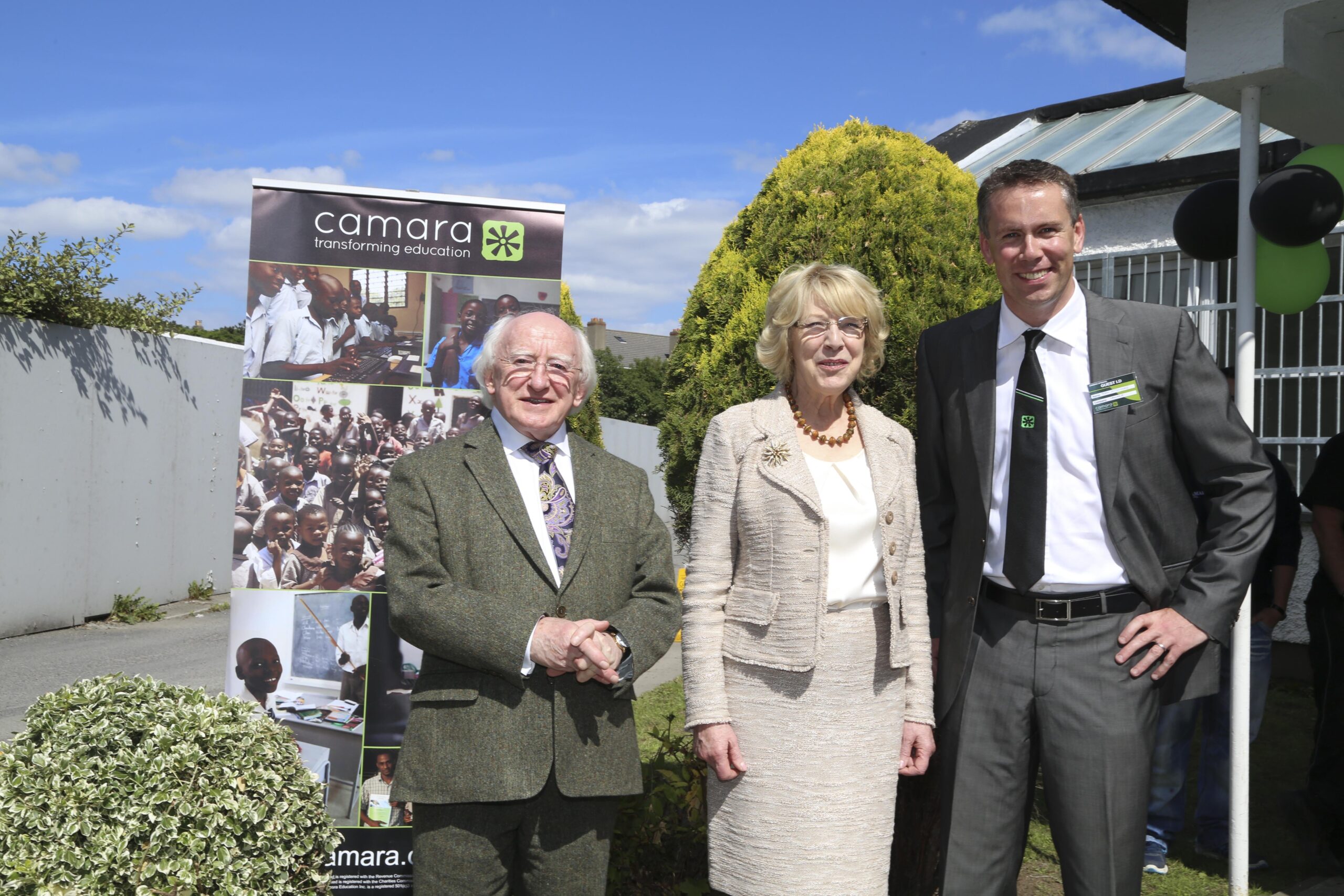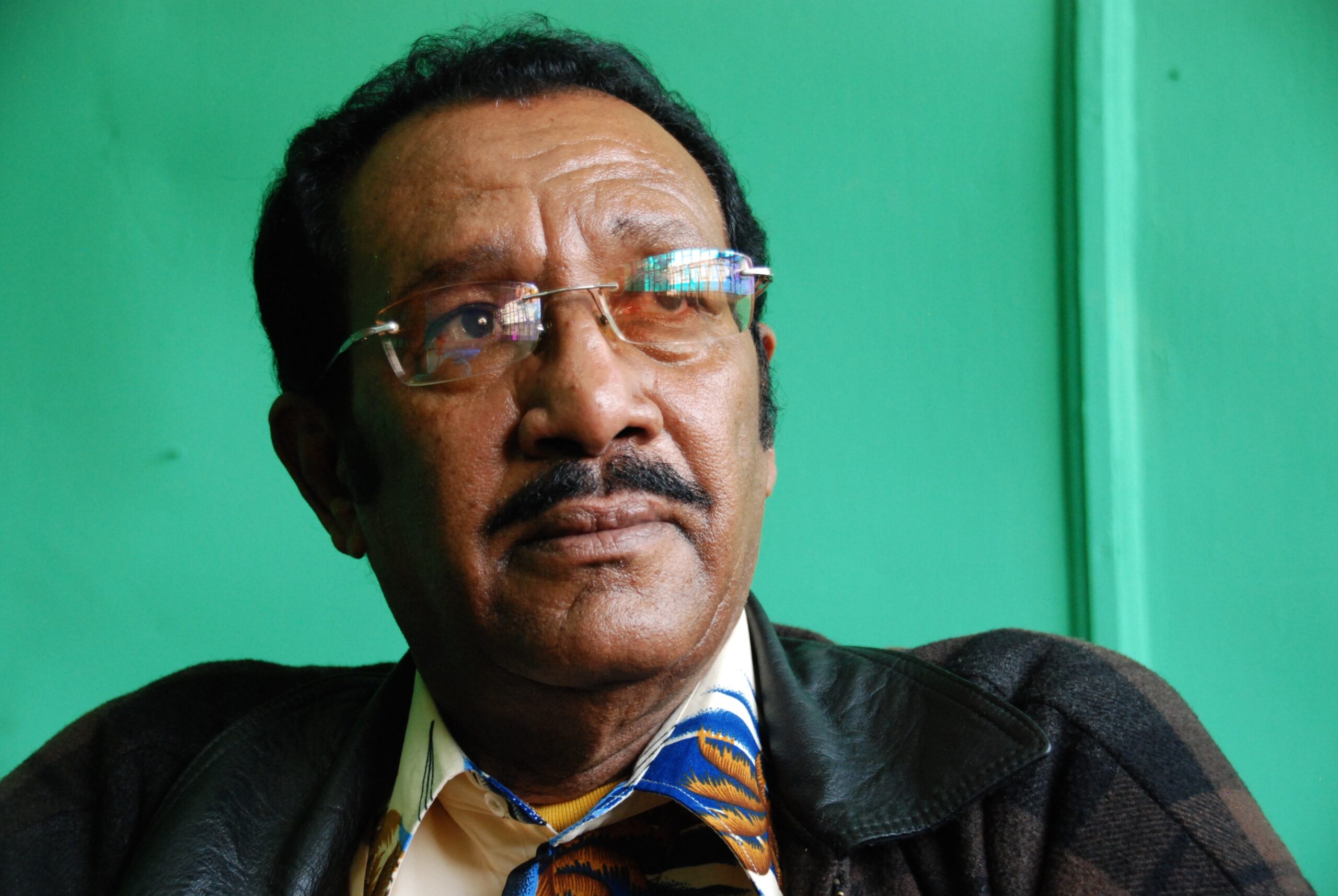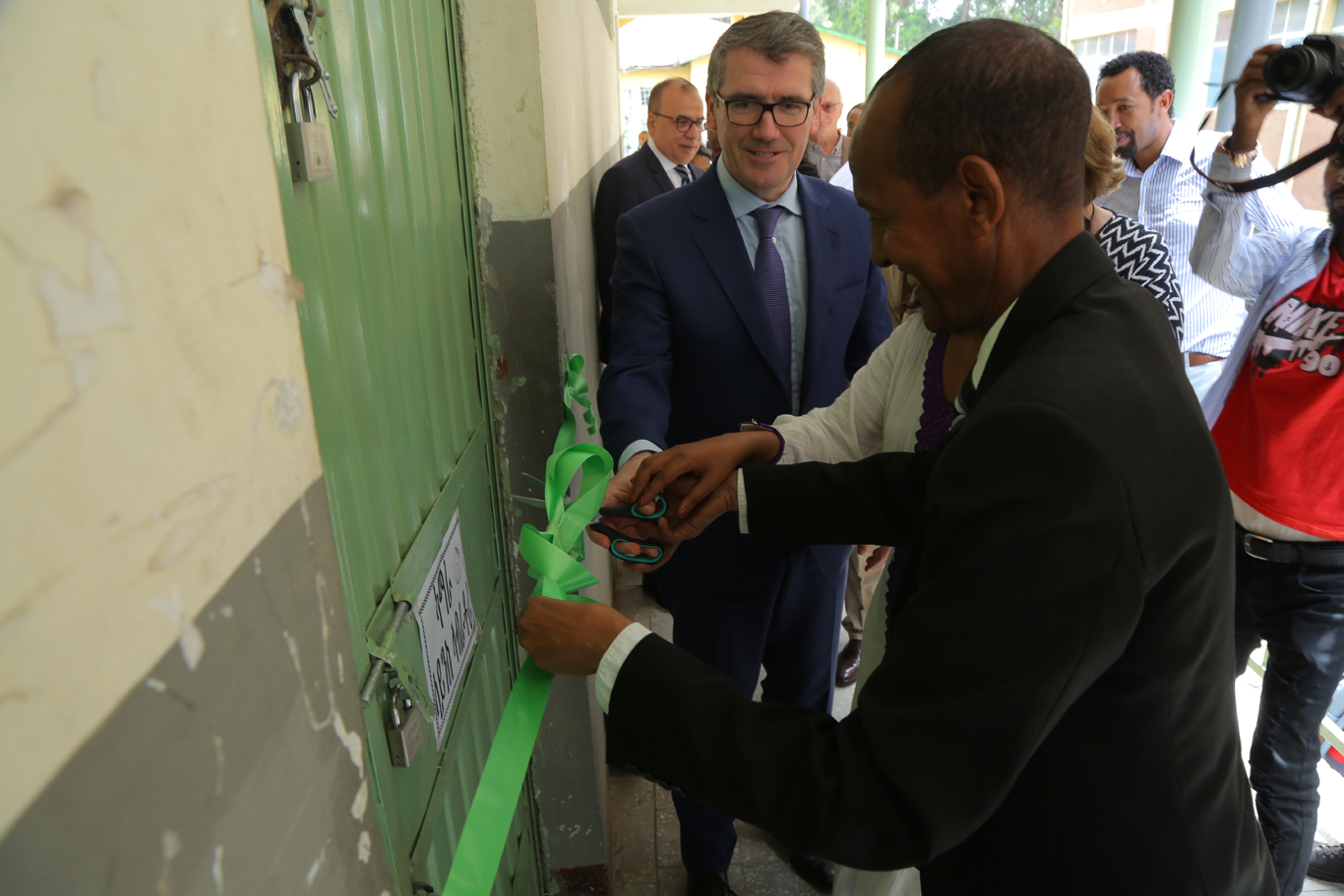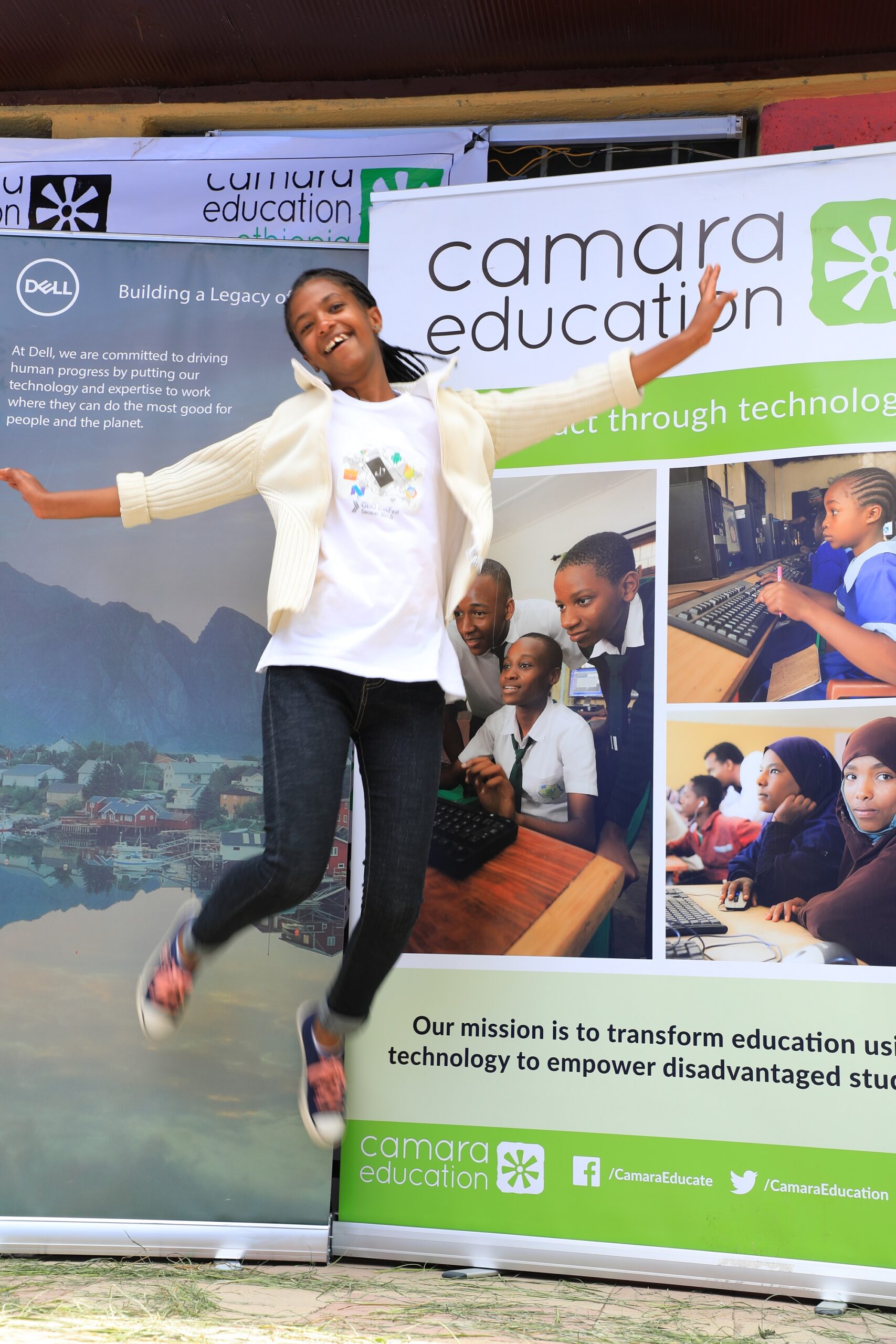Nairobi, September 6, 2018:
Camara Education has been working with Kenyan schools for over ten years, providing ICT skills and hardware to teachers and students alike in over 800 schools during that time through its social enterprise model as well as implementing projects such as iMlango, supported by the Ministry of Education. (iMlango is a comprehensive educational technology program delivered by a ground-breaking partnership of public and private sector organisations, which aims to improve Kenyan pupils’ learning outcomes, enrolment and retention.)
Supporting and aligning with the Ministry of Education’s Digital Literacy Project, Camara Education has teamed up with Dell and Computer Aid to provide access to information technology and skills through the Dell Youth Learning Program giving the schools the opportunity to start on their digital journey for integrating ICT into their everyday lessons.
Two primary schools, Al-Huda Muslim Primary and Ngong Township Primary School, based in Kajiado County, are the beneficiaries of an ICT-in-education project through which Camara Education – working with Dell and Computer Aid – sets up computers in classrooms and solar powered labs. There are two labs in each school and the classrooms have also been equipped.
The Solar Powered labs program is a fantastic initiative which helps to deliver sustainable and affordable connectivity to schools in some of the most underprivileged areas of the world. Using a combination of solar power, energy-efficient Dell Wyse technology and air-cooled servers, the labs are built into well-lit, well-ventilated shipping containers and help take electricity supply out of the equation while bringing internet connectivity into the heart of communities. This solution uses less than four percent of the energy of a typical PC.
To initiate the project, a process which began in early 2017, Camara Education and Dell – working with Ministry of Education and officials from the local community – identified the institutions to host the labs. These decisions were made on key criteria such as lack of access to electricity and the location of the schools (if close to an underserved community). The computers and equipment were provided by Dell and deployed by Camara Education. The project management of the deployment of the solar lab was driven by Computer Aid international. The program was delivered in two phases: 1. The equipping of the classrooms with computers and 2. The classrooms were equipped between 22nd -24th September 2017 at Al Hudaa Muslim primary school and between 26th – 28th September 2017 at Ngong Township Primary school. The solar labs were deployed on the 25th January 2018 in both schools. The Primary School ICT learning and Solar Program is complementing the implementation of the Digital Literacy Program by the Government (DLP) in all 23,951 public primary schools countrywide. The focus of DLP (or DigiSchools) program is to enhance learning through the use of digital technologies with emphasis on digital content, not devices. The project targets to deliver over 1.2 million devices in two years at a cost of Kshs 29 billion with additional investment in school infrastructure, teacher training, electricity connections and content development.
This therefore means that any other projects involving the donation of computers and ICT equipment paired with skill and capacity building of teachers in the schools should be viewed as complementing what the government is already doing – i.e. this provides the schools with an additional access level support upon which the government initiative can build and use as an added resource to launch content on. In the two schools a total of 66 teachers received capacity building on Skill Builder and Intel Teach courses. A total of 80 hours support was provided to the teachers during the capacity building sessions in each of the schools. This enabled the teachers to use ICT as a teaching tool, to integrate ICT into teaching for example. Thanks to this program, the students enjoyed the new learning methods and benefitted from access to extra teaching/learning resources.
With the opening and official launch of the Primary School ICT learning and Solar Program at Al-Huda Muslim Primary School in Kajiado County, the number of Dell Learning Labs has now risen to 17 in total – that is two in Kenya, twelve labs in South Africa, with another one in Nigeria, Colombia and Morocco. The impact of the Dell Learning Labs so far is huge – nearly 7,500 students have benefited from the project during school hours, and many more members of communities have access to the labs after school. This access to technology and learning new skills boosts self-confidence, bringing quality of life and job opportunities into communities that need them the most.
In the few months it has been operational, the Al-Huda Muslim Primary School administration has already noticed how the computer lab and container have become popular with students in the school. The project gives access to ICT and internet to 2,839 students across the two project schools: Al-Huda Muslim Primary (789) and Ngong Township Primary School (2,050). The two labs are meant to inspire youth to learn about sustainability and innovation using technology, additionally the space also became a canvas with the intervention of local artist Harrison Chege “Bantu” whose intervention made the spaces even more attractive and adapted to the school context.
Mr Mayquva Wanjala, the Principal of Al-Huda Muslim Primary School who has been involved with the project from its inception, said that with a population of over 700 students, controlling the number who access the facilities has become a challenge, but in a good way.
Said Mr Wanjala: “This project is going to impact very much positively to this community and I am sure the youth are going to realize their dreams through research, experience and networking. It is the best thing to me that can happen to a visionary society. “
For Camara Education, with the launch of the Dell Youth Primary School ICT learning and Solar Program at Al-Huda and Ngong township complete, the next phase to consider is how to ensure the facility remains sustainable while serving the students and youth from the community.
Speaking during the launch, Mr Daniel Oloo, the Camara Education Country Manager for Kenya noted that they’ll keep working with the schools to ensure that the facility and computers in the labs are kept in good condition.
Stated Oloo: “We are very privileged to work with the various relevant Kenya government entities in supporting this initiative. Camara Education will continue to focus on contributing towards the Sustainable Development Goal (SDG) 4 quality education and 8 which aims to ‘promote sustained, inclusive and sustainable economic growth, full and productive employment and decent work for all’. The partnership with Dell, Computer Aid and the Kenya government has developed new lessons.”
His comments were reiterated by Ms. Lotta Kinnunen, Camara Education’s Head of Africa Operations who said: “We have been working with schools across five countries in Africa for over ten years and we are very excited to be part of this project in Kenya, making use of renewable energy and a combination of technologies to support these schools. This is a great platform for students and teachers alike and we are looking forward to seeing the educational impact of the project”.
Mr. Ken Kagota, the Kenya Office Site Lead and also the Client Solutions Lead for Southern and East Africa at Dell EMC said: “This worthwhile program has support from across the Dell company. Our senior management as well as our local team members all invest time to make it a reality. It’s fantastic to be helping students to gain digital skills that will open up opportunities for them across all areas, but particularly in STEM careers where there is strong demand.”
Speaking about the launch, Houcine Faïk, EMEA Strategic Giving Manager at Dell, said the following:
“Programs like the Solar Powered Labs reflects perfectly our DNA which is to use our technology and expertise to enable Human progress. This concept is set to breach the educational divide in areas suffering not only from poverty, but also from lack of access to energy”.





